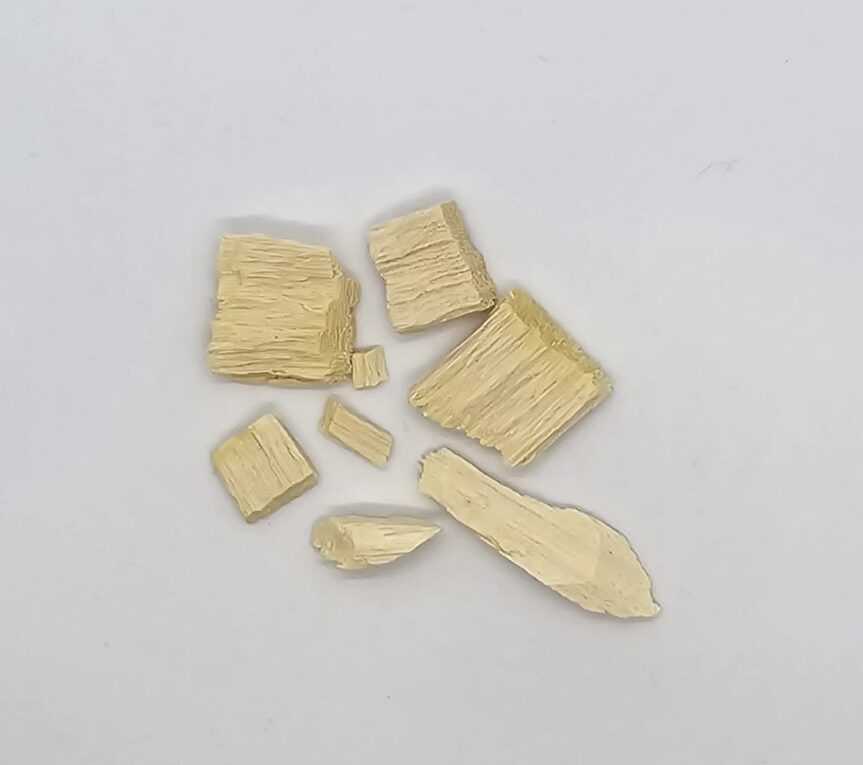Quassia (Quassia amara) is a herbal remedy derived from the bark of the Quassia tree. It is in the genus of flowering plants in the family Simaroubaceae and is native to the rainforests of Central and South America. Named after the indigenous Surinamese leader, Quassia, this herb has a long history of traditional use among various cultures for its bitter properties and potential health benefits.
Which Parts of the Quassia Tree are used Medicinally
The medicinal part of the Quassia tree (Quassia amara) is the bitter wood (bark), which is used for various medicinal purposes.
The bark contains several bioactive compounds, including quassinoids, which are responsible for its bitter taste and pharmacological effects.
Health Benefits of Quassia
Quassia, with its bitter essence derived from the bark of the Quassia amara tree, holds a unique place in traditional herbal medicine. It has a long history of traditional use particularly for its digestive and appetite-stimulating properties. It is used as; a bitter digestive tonic, anti-parasitic agent and topical insect repellent, highlighting the versatility of this herb. As a bitter tonic it supports digestion and alleviates symptoms such as; indigestion, bloating and loss of appetite.
Below we will explore these medical uses of Quassia bark in more detail:
Quassia as a Traditional Bitter Tonic
One of the primary characteristics of Quassia is its intensely bitter taste, owing to the presence of compounds known as quassinoids. Traditionally, the bitter taste has been valued for its potential to stimulate digestive processes. Bitter herbs like Quassia are believed to trigger the production of digestive juices, enhancing appetite and supporting overall digestive health.
Quassian as a Digestive Aid and Appetite Stimulant
Quassia has been employed as a digestive aid in traditional herbal medicine. It is often used to alleviate symptoms such as indigestion, bloating, and flatulence. The bitterness of Quassia is thought to stimulate the taste buds, initiating a cascade of events that enhance the digestive process from the moment food enters the mouth.
Gentle Anti-Parasitic Properties of Quassia
Beyond its role as a digestive tonic, Quassia has been explored for its potential anti-parasitic properties. Some studies suggest that quassinoids in Quassia may have a mild anti-parasitic effect, particularly against intestinal parasites. However, it’s important to note that while Quassia has been traditionally used for this purpose, more research is needed to fully understand its effectiveness.
Quassia’s Potential Blood Sugar Support
In certain traditional systems, Quassia has been considered for its potential role in supporting blood sugar levels. Some studies have explored the impact of quassinoids on glucose metabolism, suggesting a potential role in maintaining balanced blood sugar levels. However, further research is required to establish its efficacy and mechanisms of action.
How To Take Quassia
The bitter wood of the Quassia tree is the part most commonly used for its medicinal properties.
Here are some common ways in which quassia bark is taken:
Infusion (Tea): Quassia can be prepared as an infusion by steeping the dried wood chips or wood shavings in hot water.
To make quassia tea, you can follow these steps:
Boil water and pour it over the quassia wood chips or shavings in a cup or teapot.
Allow the mixture to steep for about 10 to 15 minutes to extract the medicinal compounds.
Strain the infusion and discard the wood chips or shavings.
Optionally, you can sweeten the tea with honey or add other herbs or spices for flavor.
Decoction: Similar to an infusion, quassia can also be prepared as a decoction, which involves boiling the wood chips or shavings in water to extract the active compounds. This method may be preferred for extracting more of the bitter constituents from the wood.
Tincture: Quassia tincture is another popular preparation, made by steeping the dried wood in alcohol to extract its medicinal compounds. Tinctures are typically taken in small doses, diluted in water or juice.
Capsules or Tablets: Quassia is also available in the form of capsules or tablets, which contain powdered or standardized extracts of the wood. This form provides a convenient and standardized way to consume quassia, especially for those who prefer to avoid the bitter taste of the wood.
Liquid Extract: Quassia liquid extract, similar to tinctures, is made by extracting the active compounds from the wood using alcohol or glycerin. Liquid extracts can be added to water or other beverages for consumption.
Topical Use of Quassia
Quassia’s properties are not limited to internal use; it has found applications in topical formulations as well. In addition to its use as a digestive aid, Quassia wood is used for its potential antiparasitic, antifungal and insecticidal properties. Extracts derived from Quassia wood have been studied for their effectiveness against certain parasites and insects, although more research is needed to fully understand their mechanisms of action and therapeutic potential. Its bitterness makes it unappealing to insects, and as a result, Quassia extract has been used in natural insect repellents.
Always take care when taking herbs and Read Our Disclaimer.
Quassia Herb Notes / Side Effects
While Quassia has a history of traditional use and potential health benefits, it’s important to exercise caution. The intense bitterness may be too strong for some individuals, and high doses could lead to adverse effects. Pregnant and breastfeeding women, as well as individuals with certain medical conditions, should consult with a healthcare professional before using Quassia or any herbal remedy.
As with any herbal remedy, it’s crucial to approach its use with an understanding of individual health needs, potential interactions, and the need for further scientific exploration to validate its various traditional uses.
Use Quassia preparations cautiously. As with any herbal remedy, it’s advisable to start with a lower dose and gradually increase as needed, while monitoring for any adverse reactions.
Pregnant or breastfeeding women, as well as individuals with underlying health conditions or taking medications, should consult with a healthcare professional before using quassia or any herbal supplement.


Leave a Reply